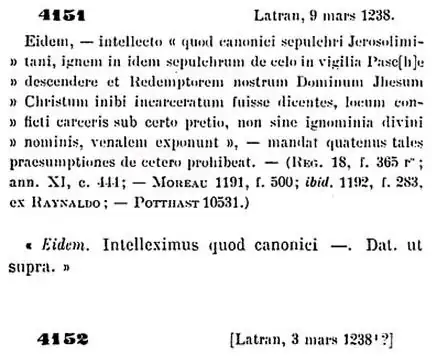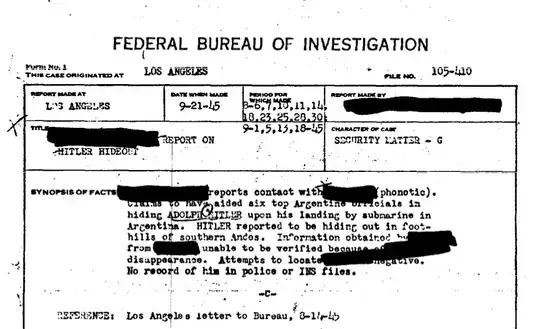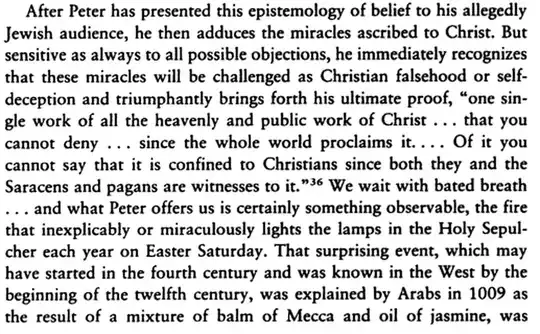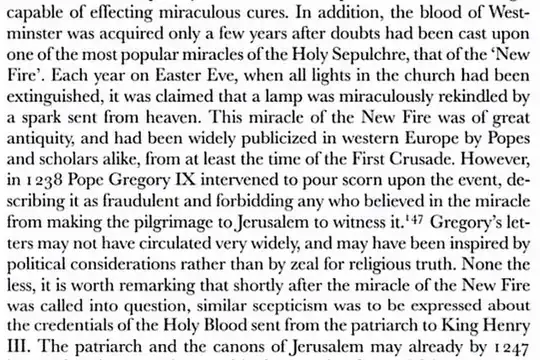Following George's research I found the reference in Volume 2 of the Registres de Grégoire Ix
Example URL

My transcription of that:
Eidem -- intellecto "quod canonici sepulchri Jerosolimitani, ignem in idem sepulchrum de celo in vigilia in Pasche descendere et Redemptorem nostrum Dominum Jhesum Christum inibi incarceratum fuisse dicentes, locum conflicti carceris sub certo pretio, non sine ignominia divini nominis, venalem exponunt" -- mandat quatenus tales praesumptiones de cetero prohibeat.
My translation of that:
Also -- to the understanding that "because the canons of the sepulchre of Jerusalem, [the fire] [in that sepulchre] [from the sky] [during the vigil of Passover] [to descend] [and] [the saying] [our Redeemer the Lord Jesus Christ] [in it was imprisoned], [a place] [of conflict] [of the prison] [for a fixed price], not without disgrace to the divine name, they expose for sale" -- [either 'the mandate' or 'he requires'] [to that extent] [such presumptions] [henceforth] [he prohibits].
In summary, taking a literal reading of what he wrote, his complaint seems to be not that the fire is a hoax (i.e. a false miracle): but rather it's that the practice involved selling something, which brings ignominy on God's name. It's not solidly clear to me what's being sold, but I think what's being sold is the place i.e. standing-room in the sepulchre for witnesses.
Consider for example this quote from the WIkipedia entry about Gregory IX:
Gregory was a supporter of the mendicant orders which he saw an excellent means for counteracting by voluntary poverty the love of luxury and splendour which was possessing many ecclesiastics. He was a friend of Saint Dominic as well as Clare of Assisi.
Does he call it a fraud or a hoax?
Maybe not: I don't see his saying that. I can only see that he says that what's prohibited are the praesumptiones (or in English "presumptions").
A definition of the post-classical meaning of that word is,
Boldness, confidence, assurance, audacity, presumption
Or this definition which says that by the 5th century the word means "témérité" (i.e. impertinence, audacity, cheek).
That's similar to the second of Google's definitions of the English word,
presumption
- an idea that is taken to be true on the basis of probability.
- behaviour perceived as arrogant, disrespectful, and transgressing the limits of what is permitted or appropriate.
IMO he doesn't seem to be saying that the belief is wrong, but rather that the behaviour (of selling places) is disrespectful and/or ignominious and therefore should be prohibited.
I think it clearly says that it's prohibited because of the canons' selling.








